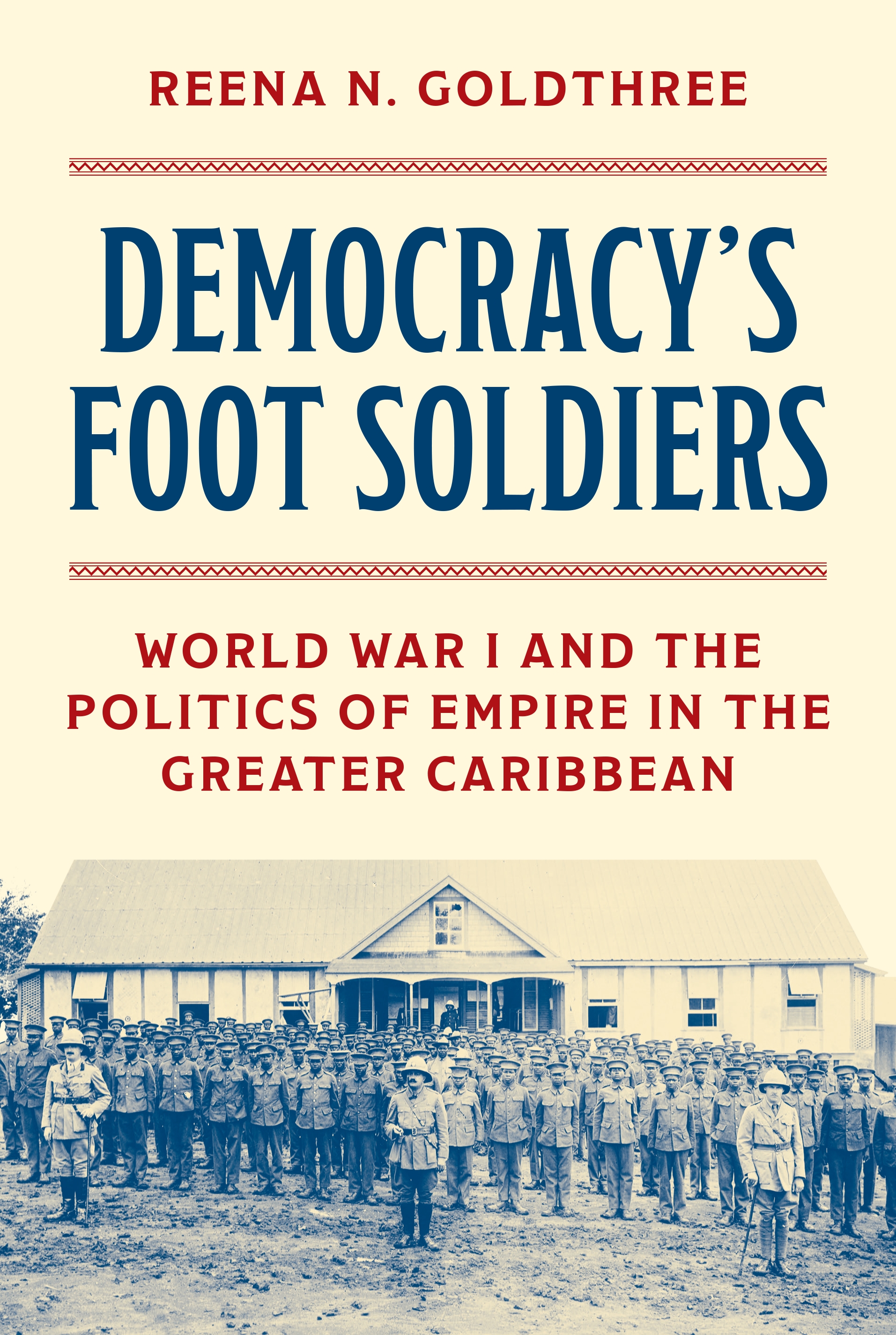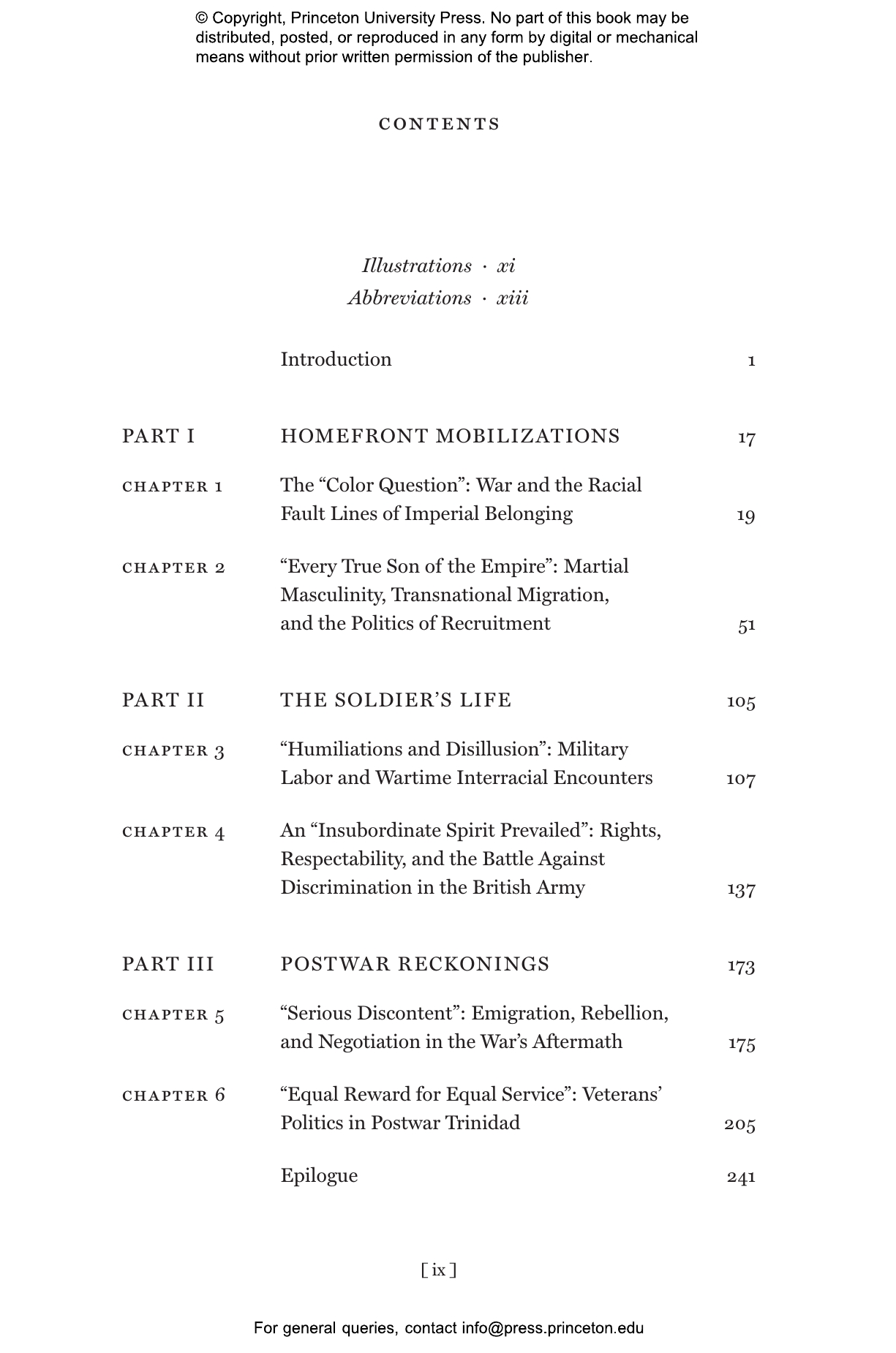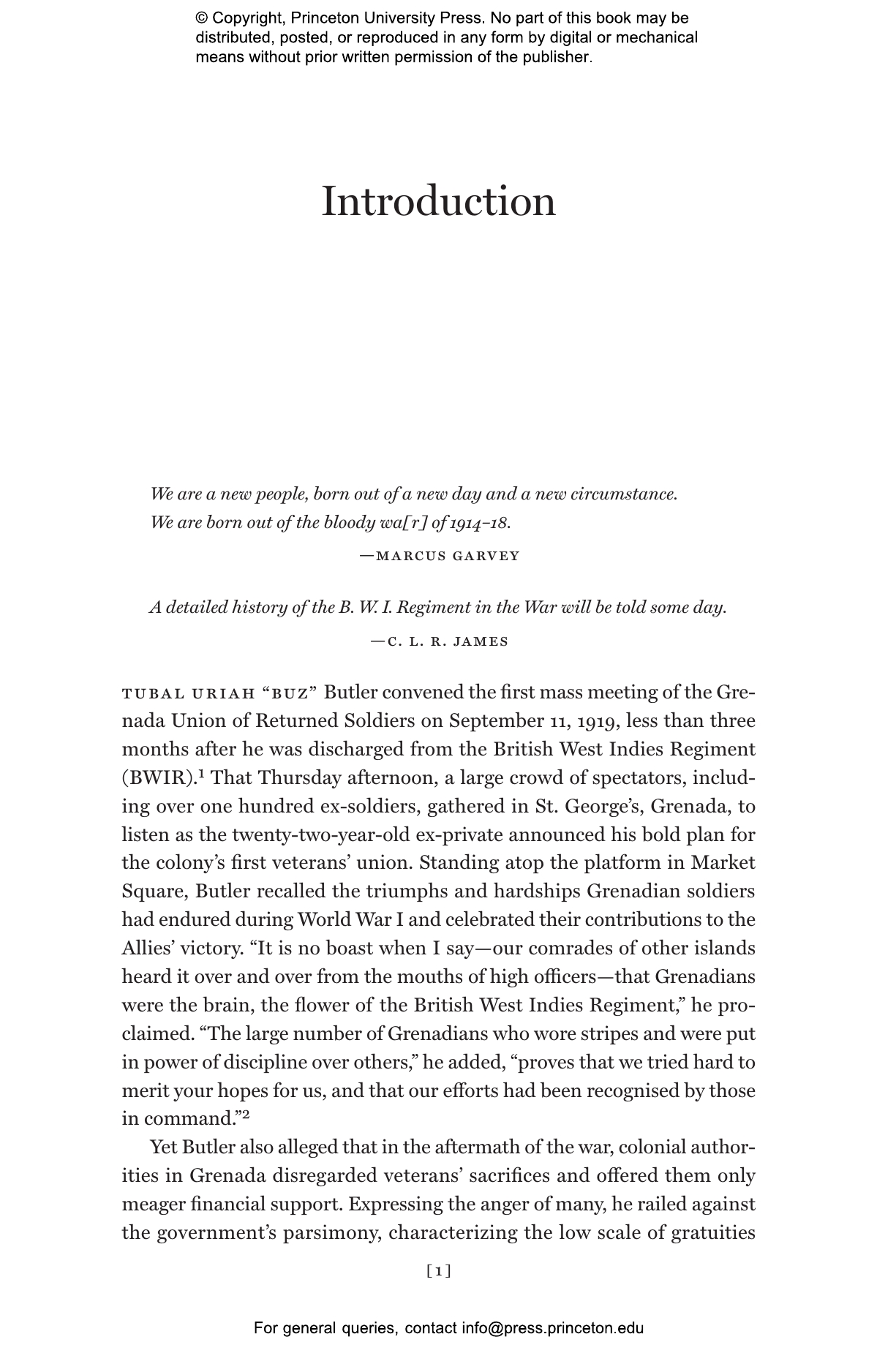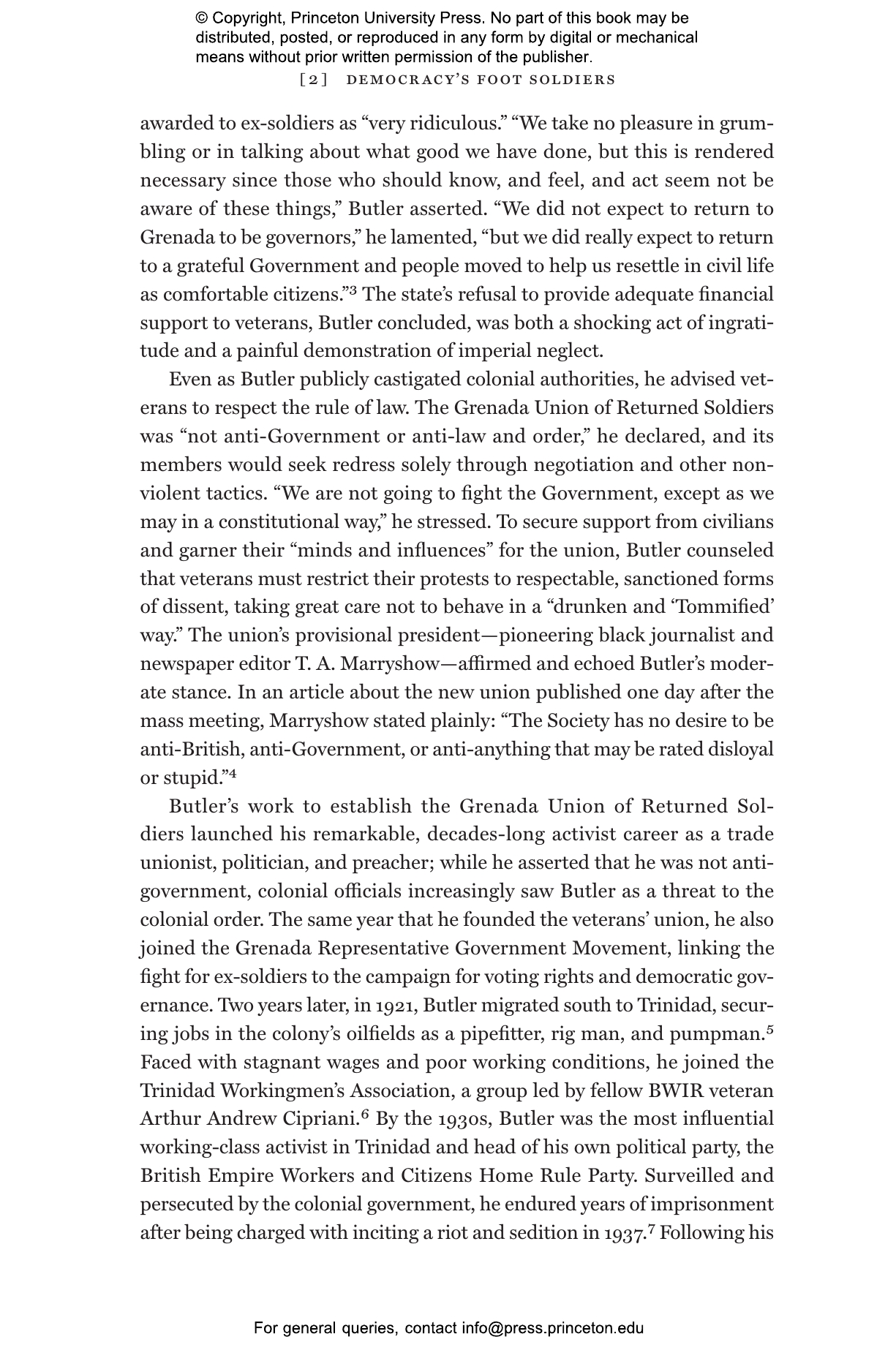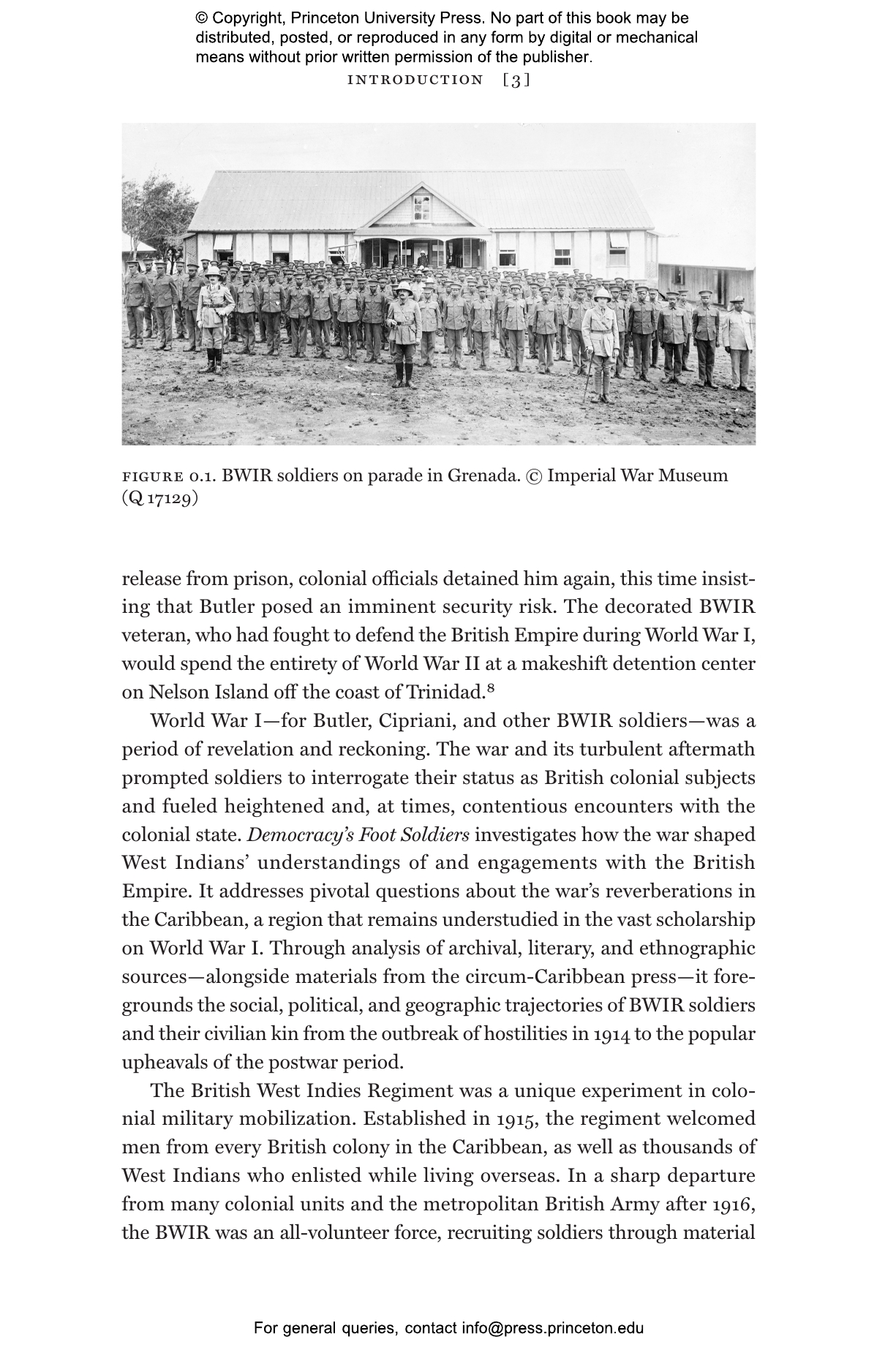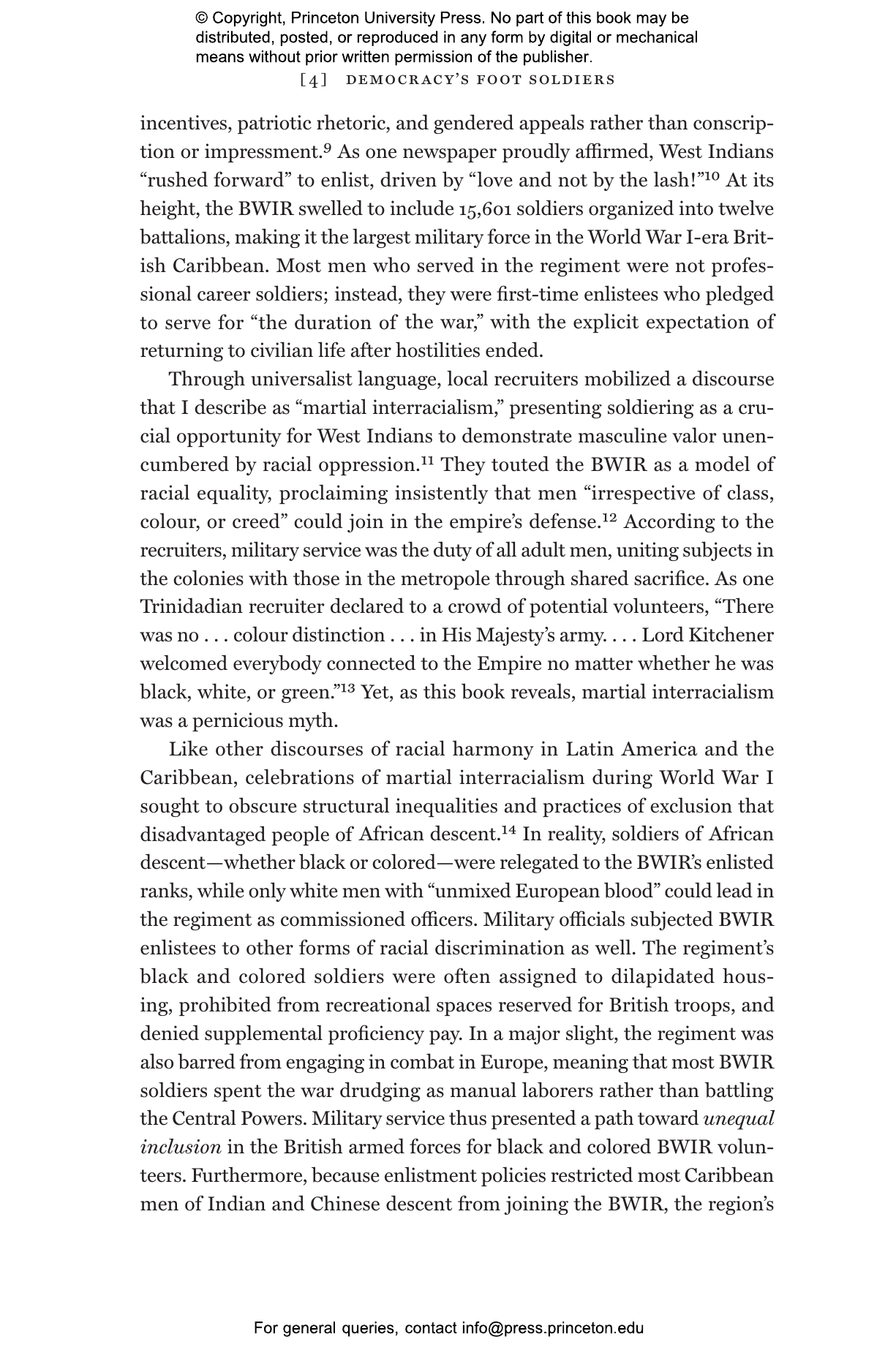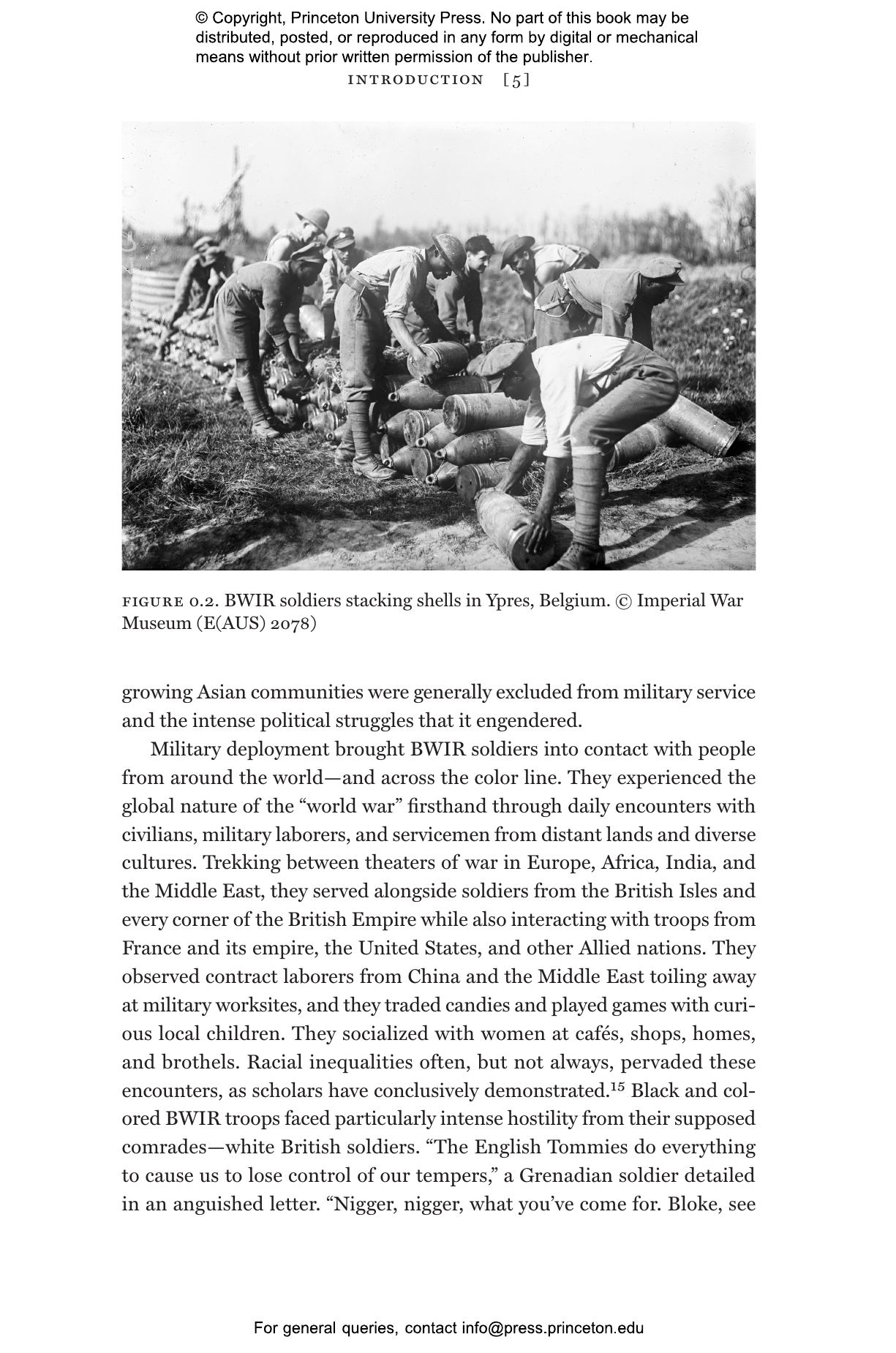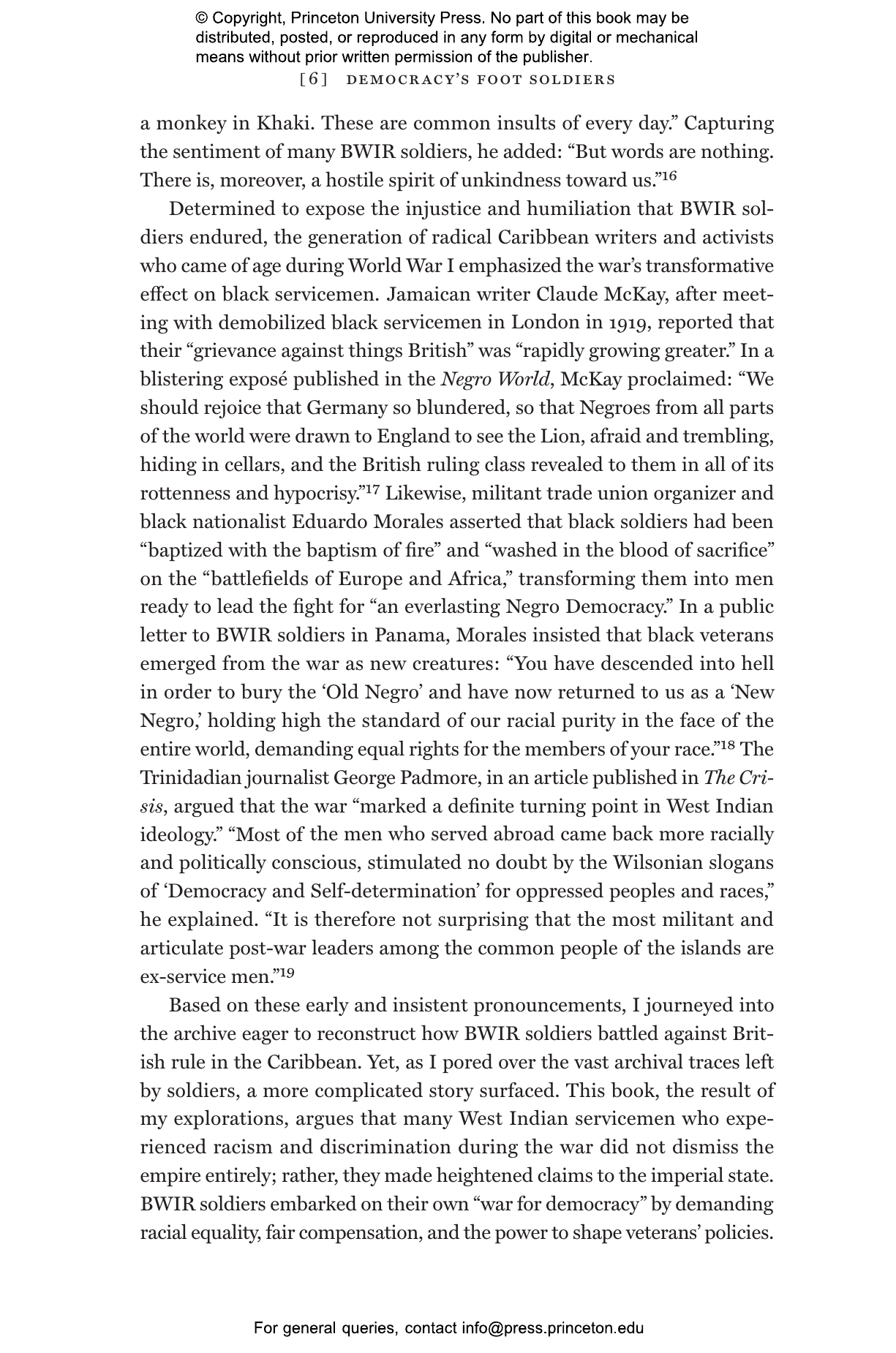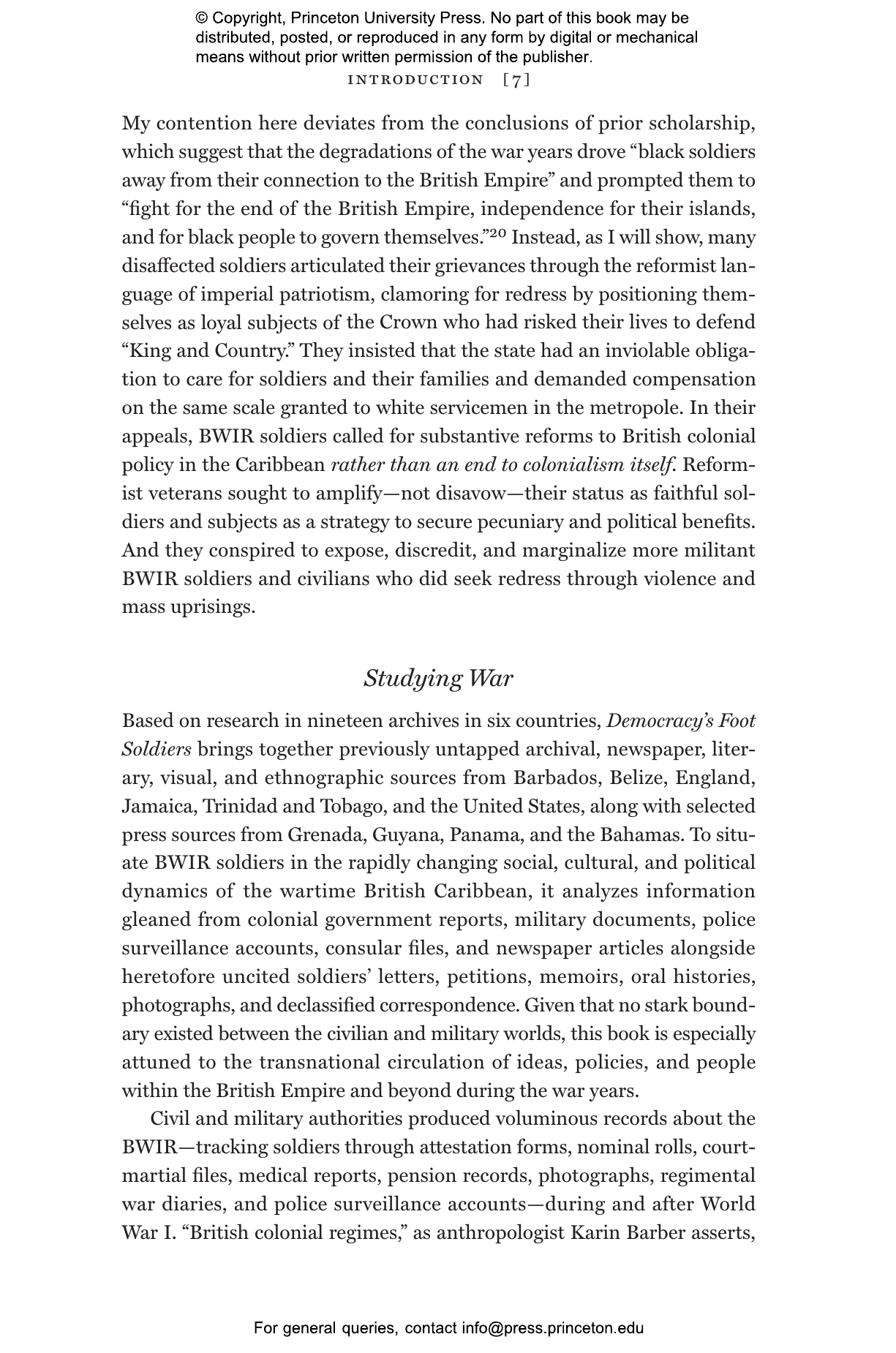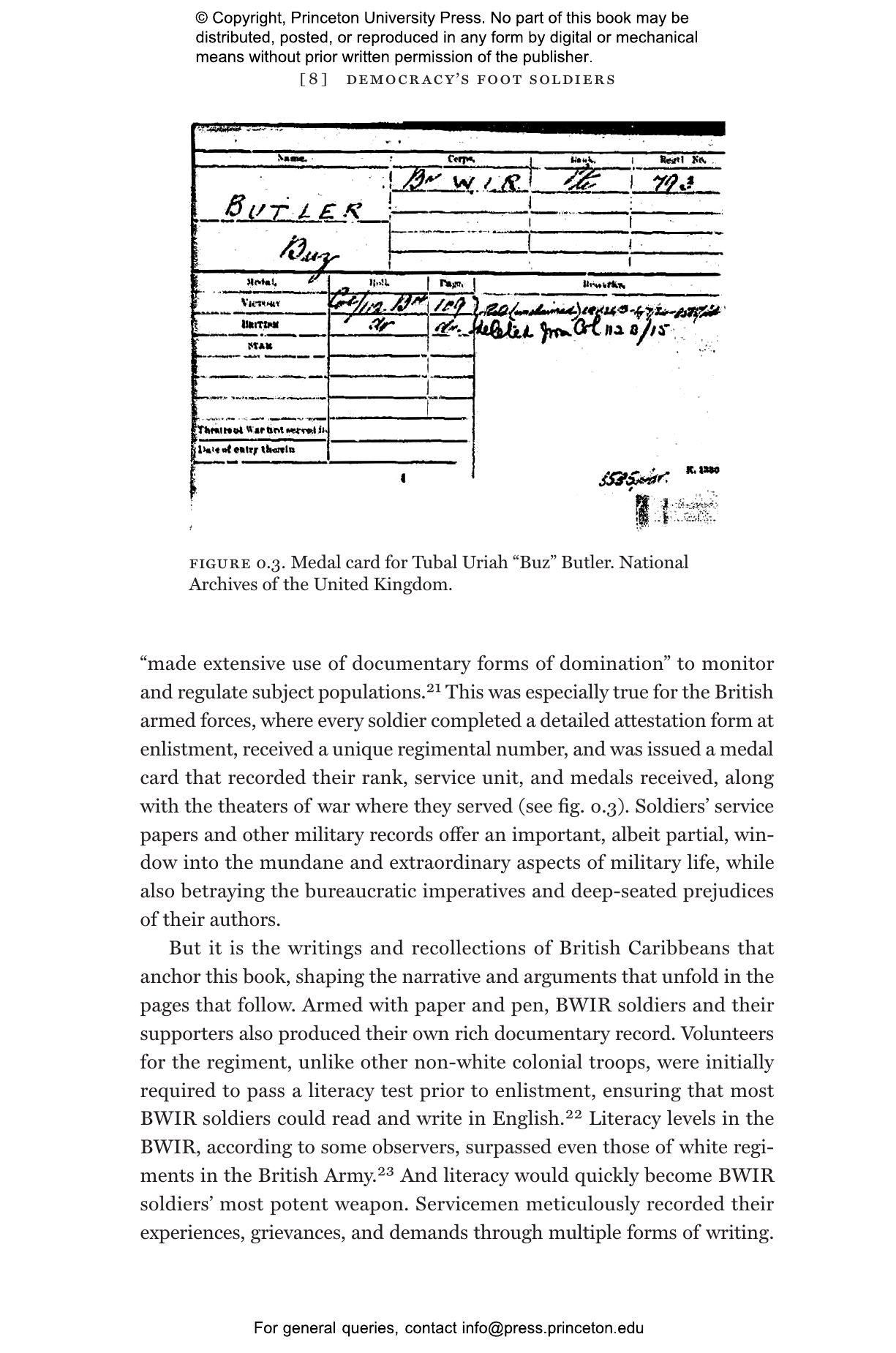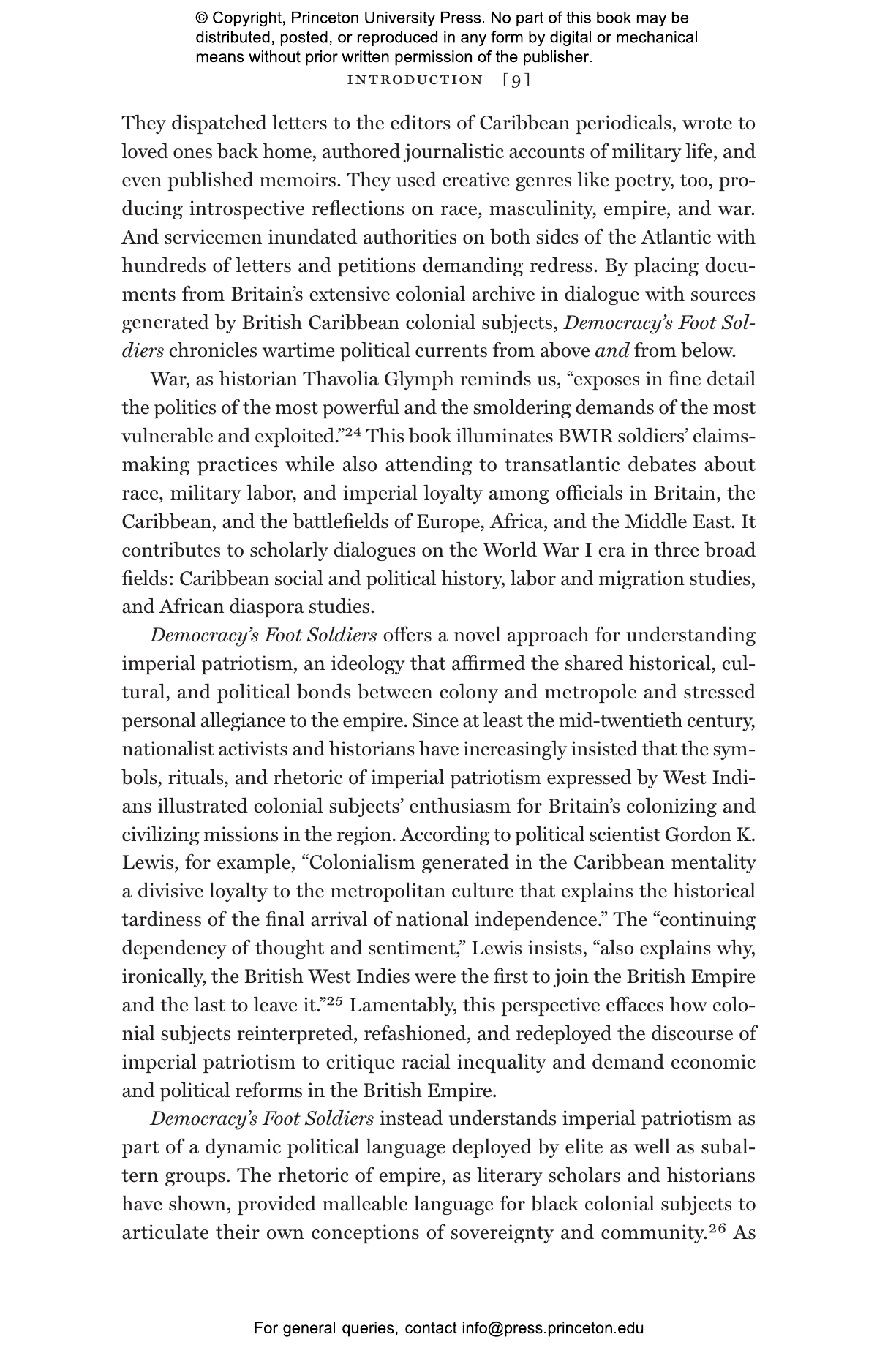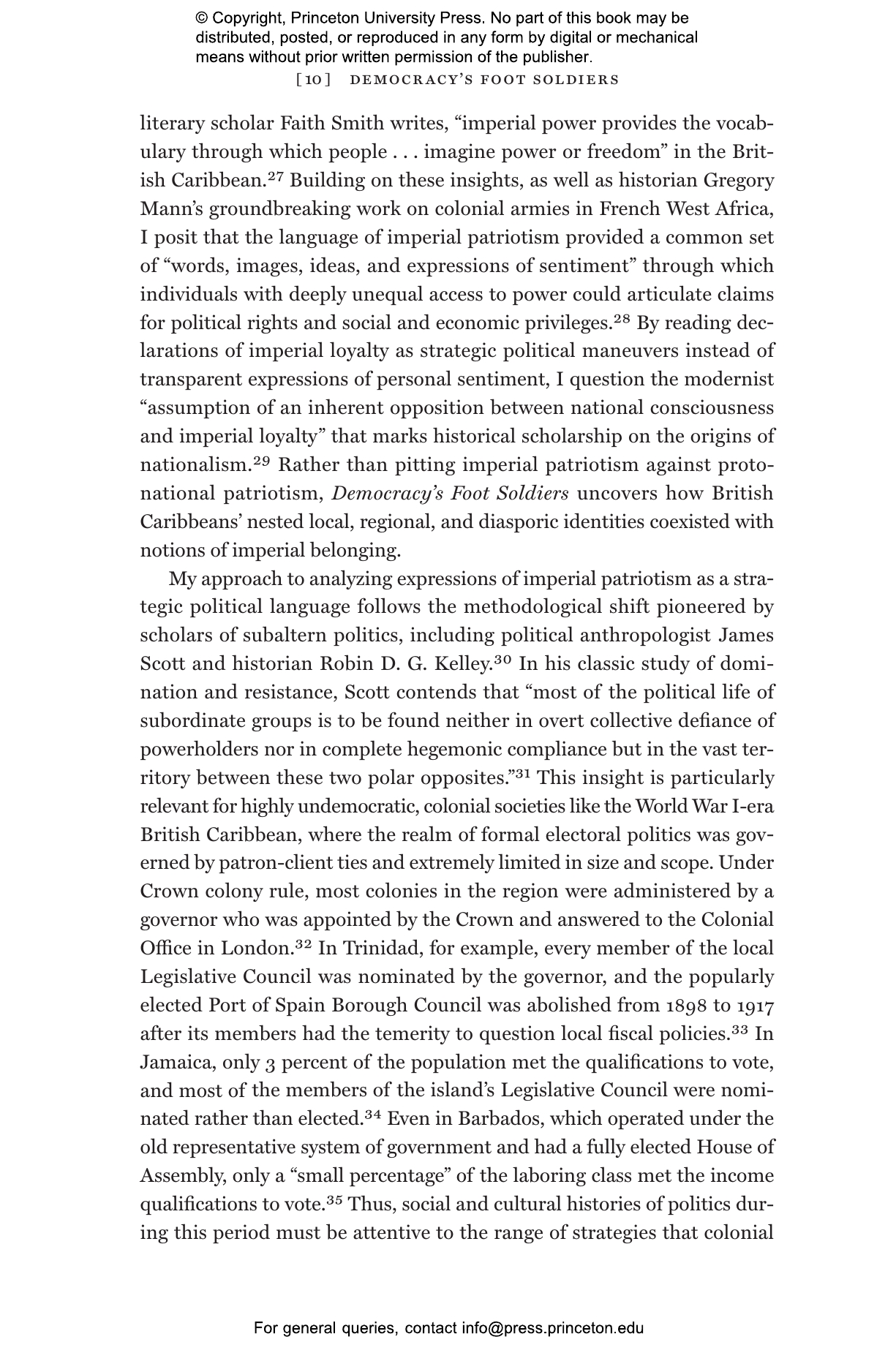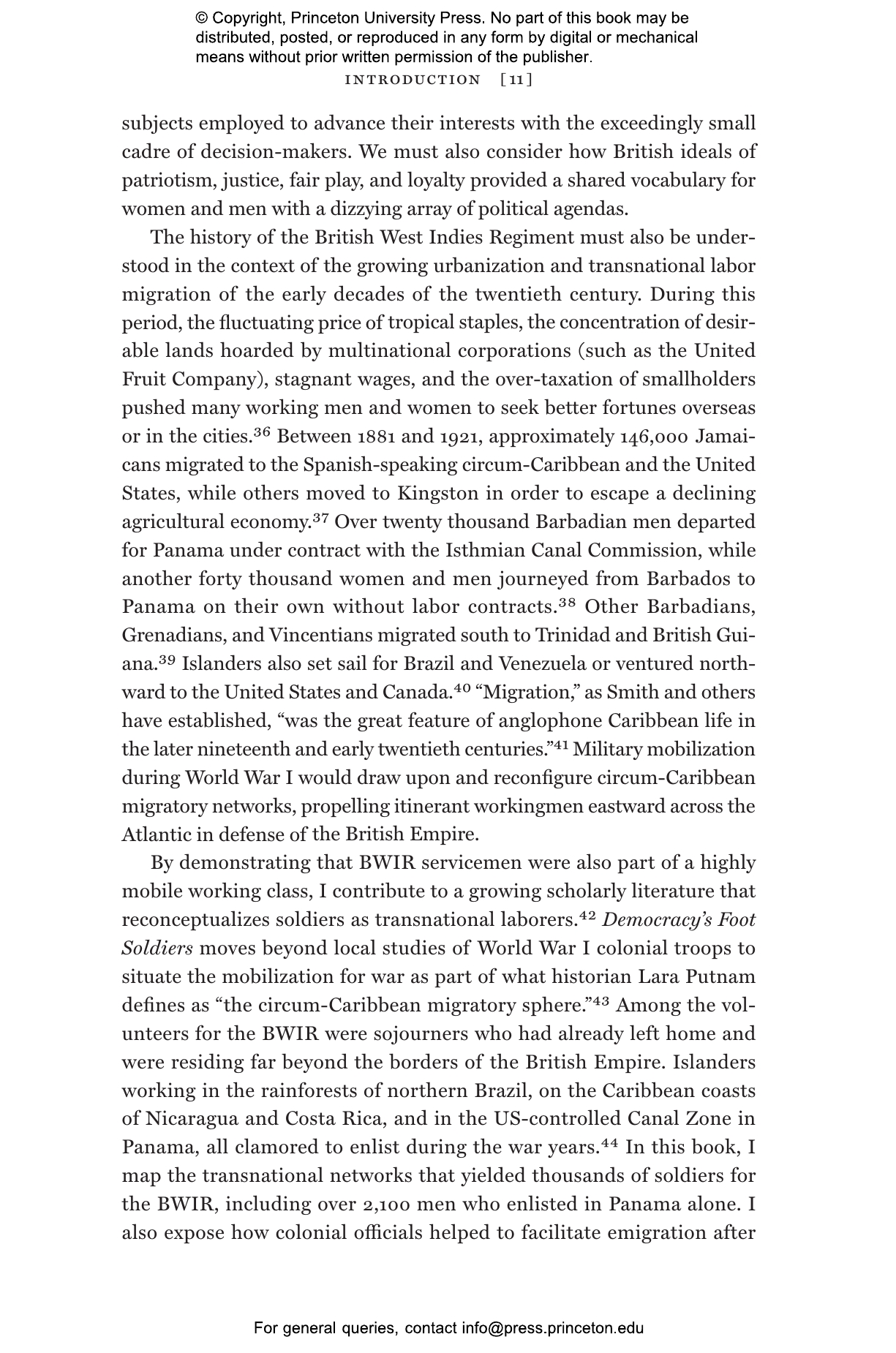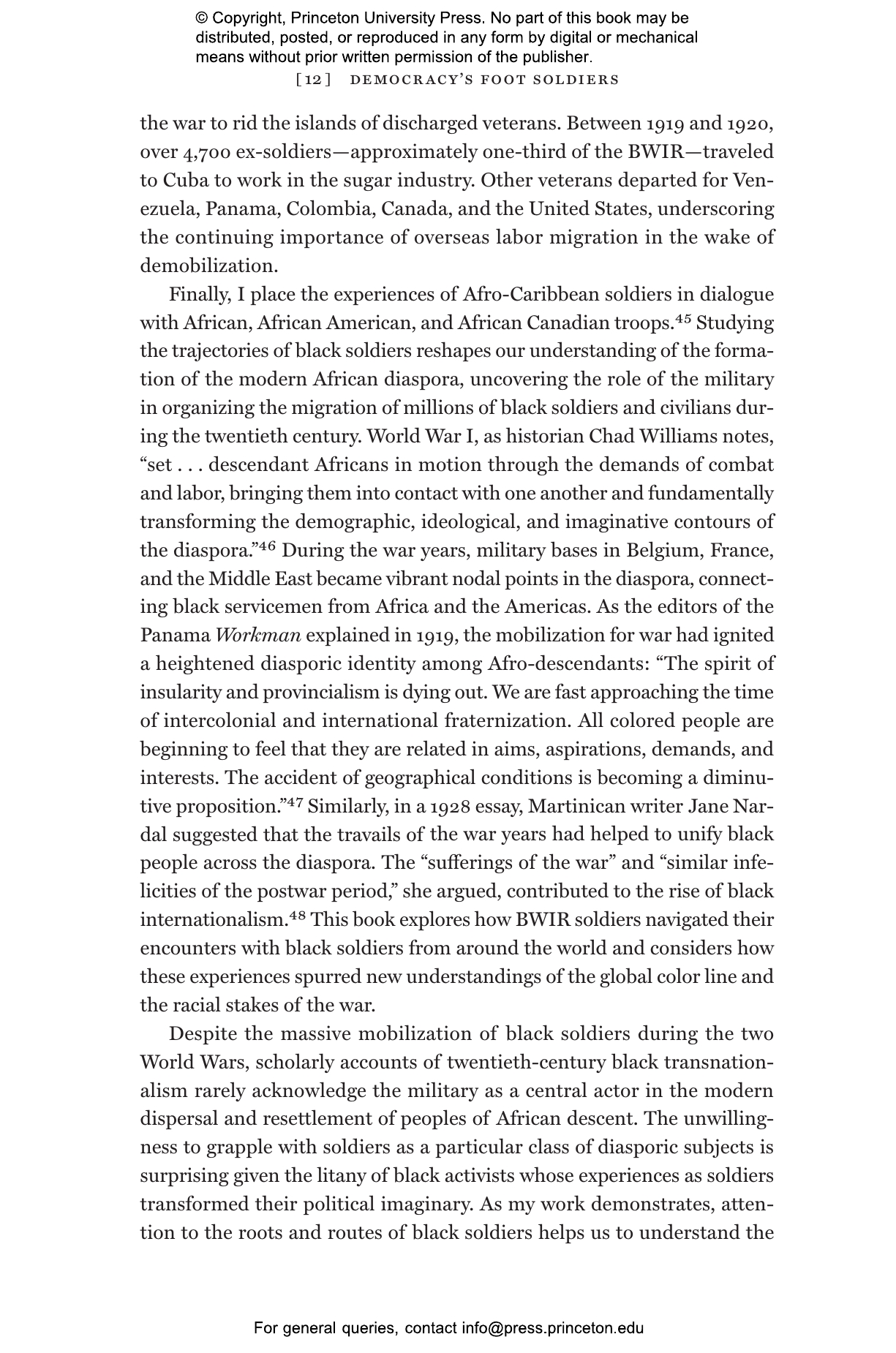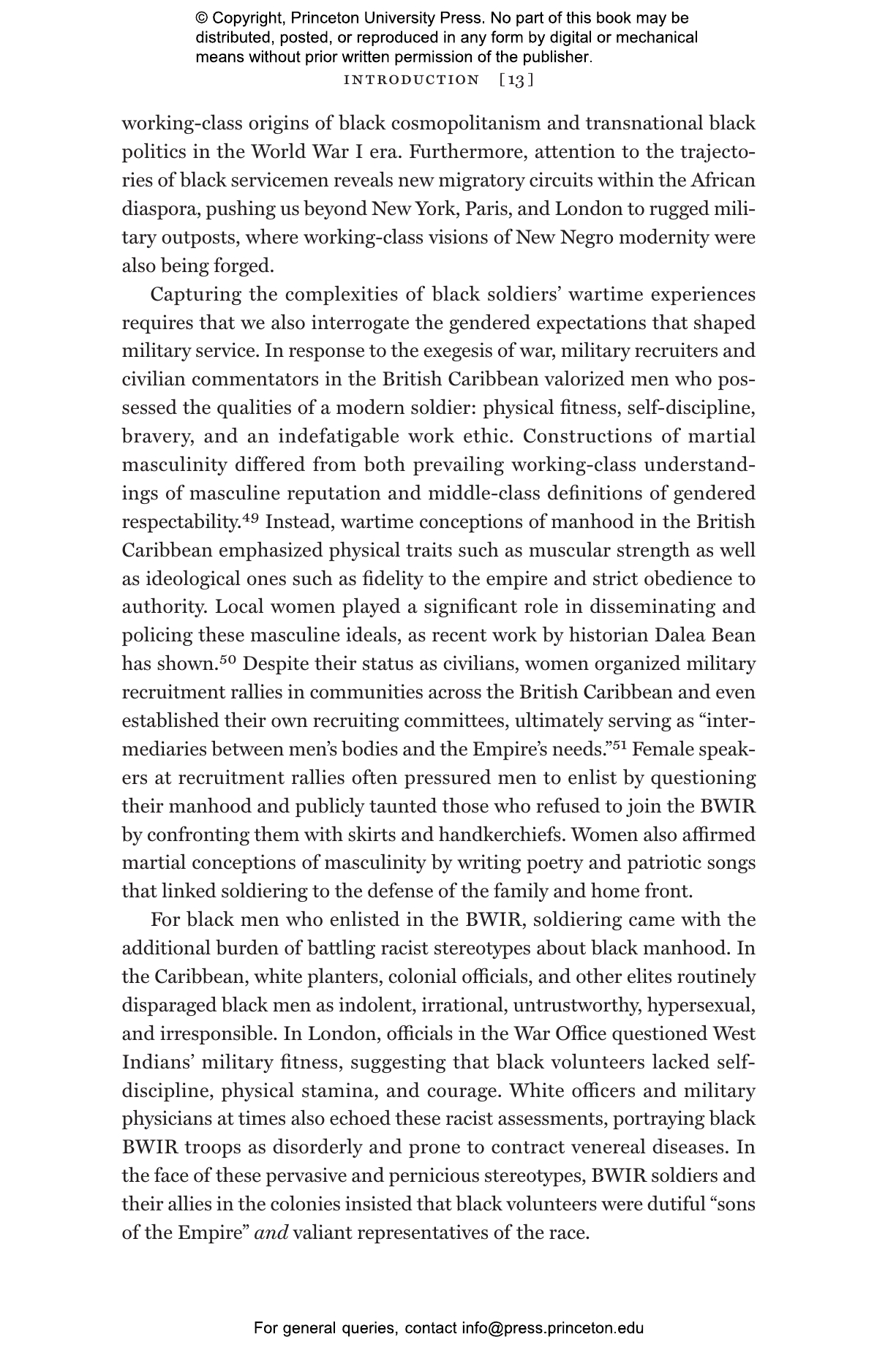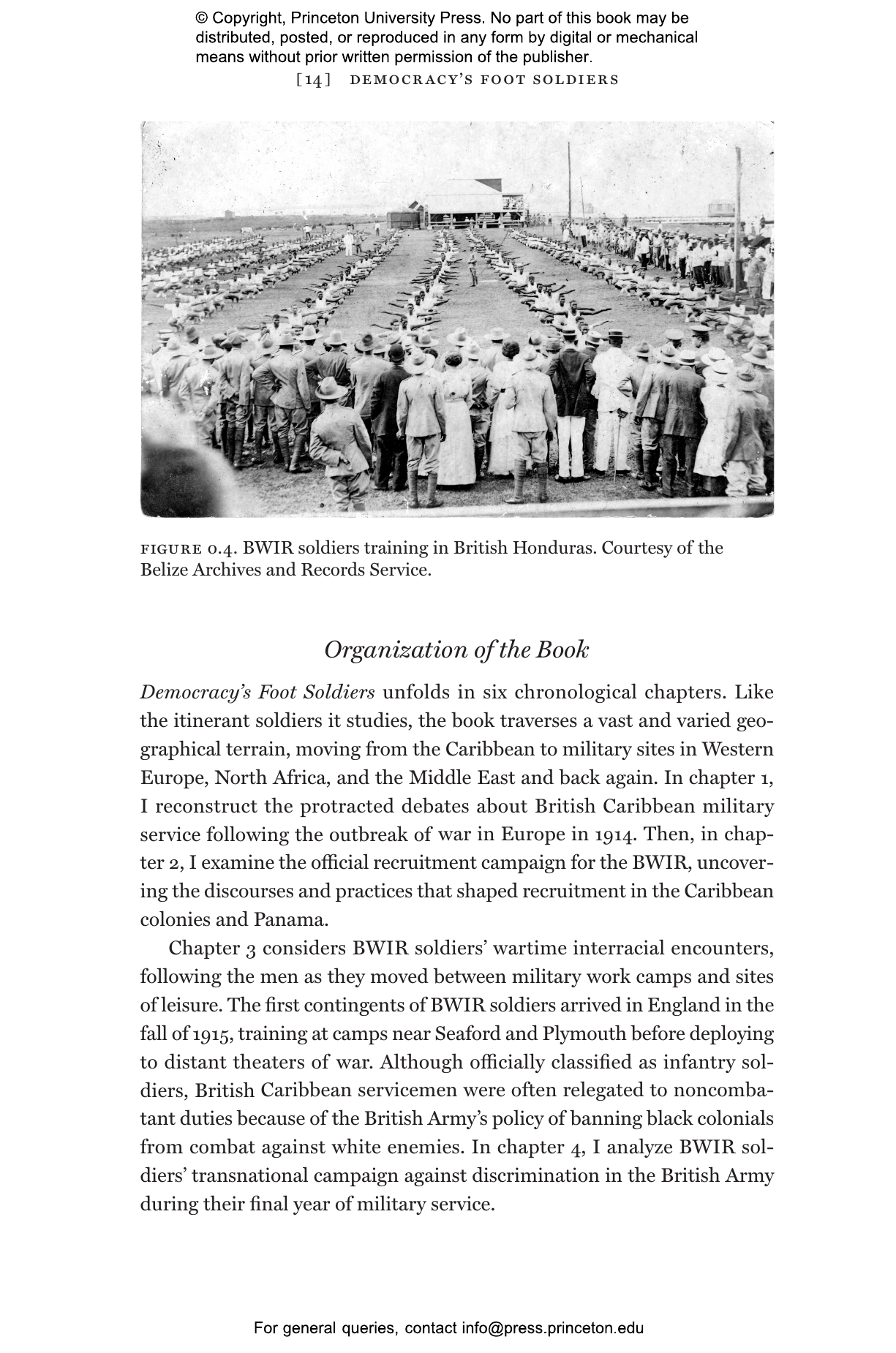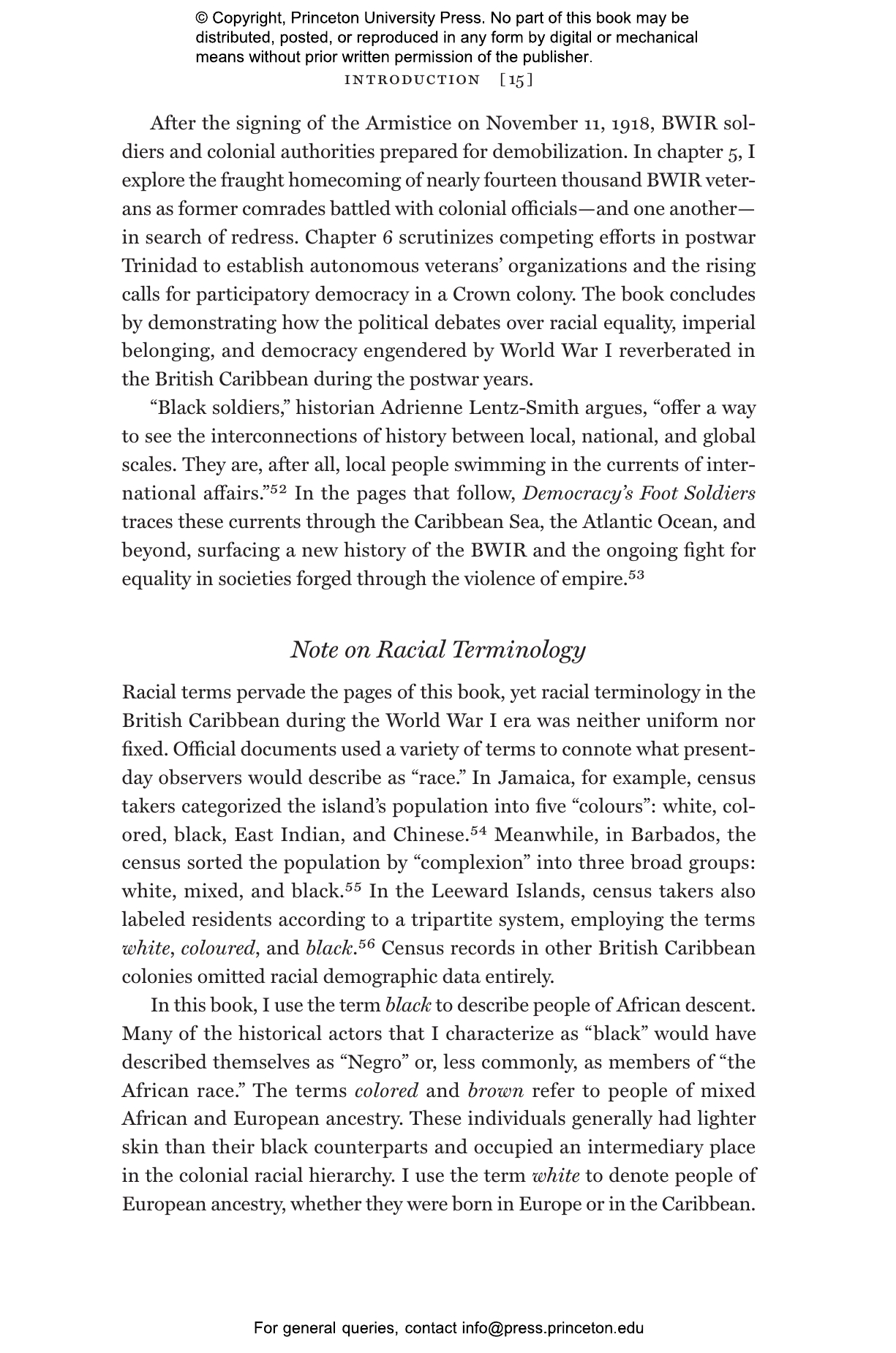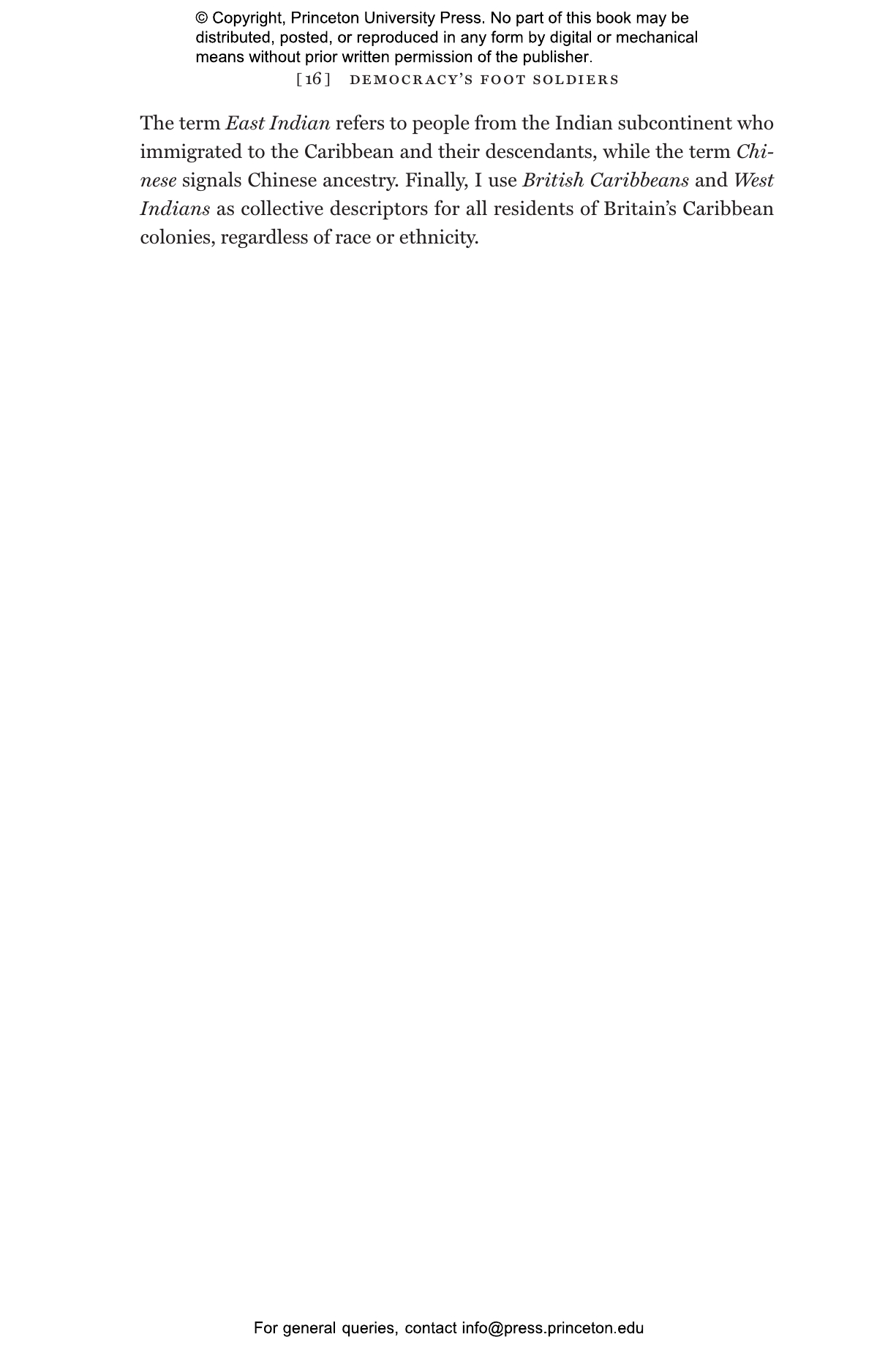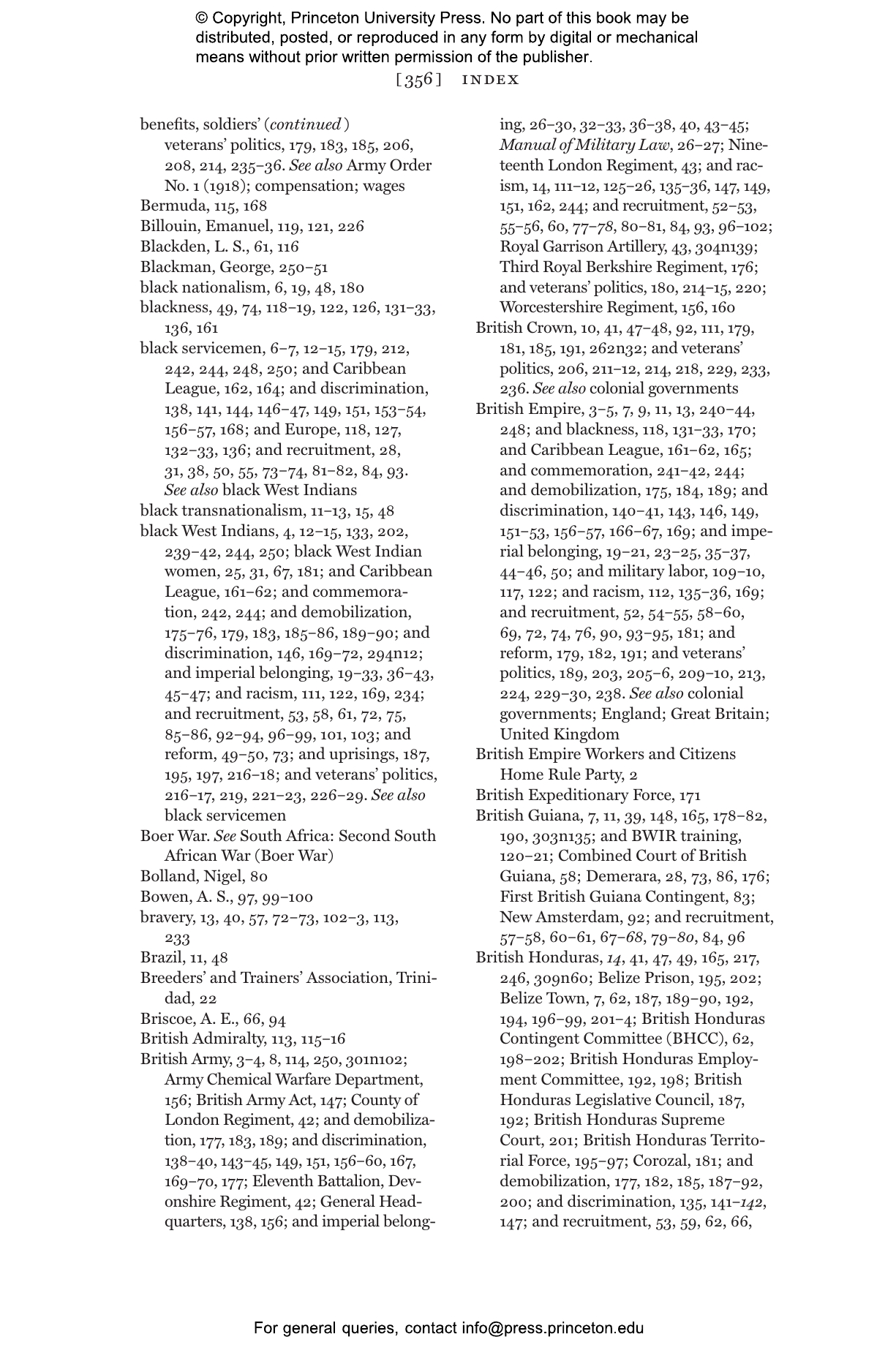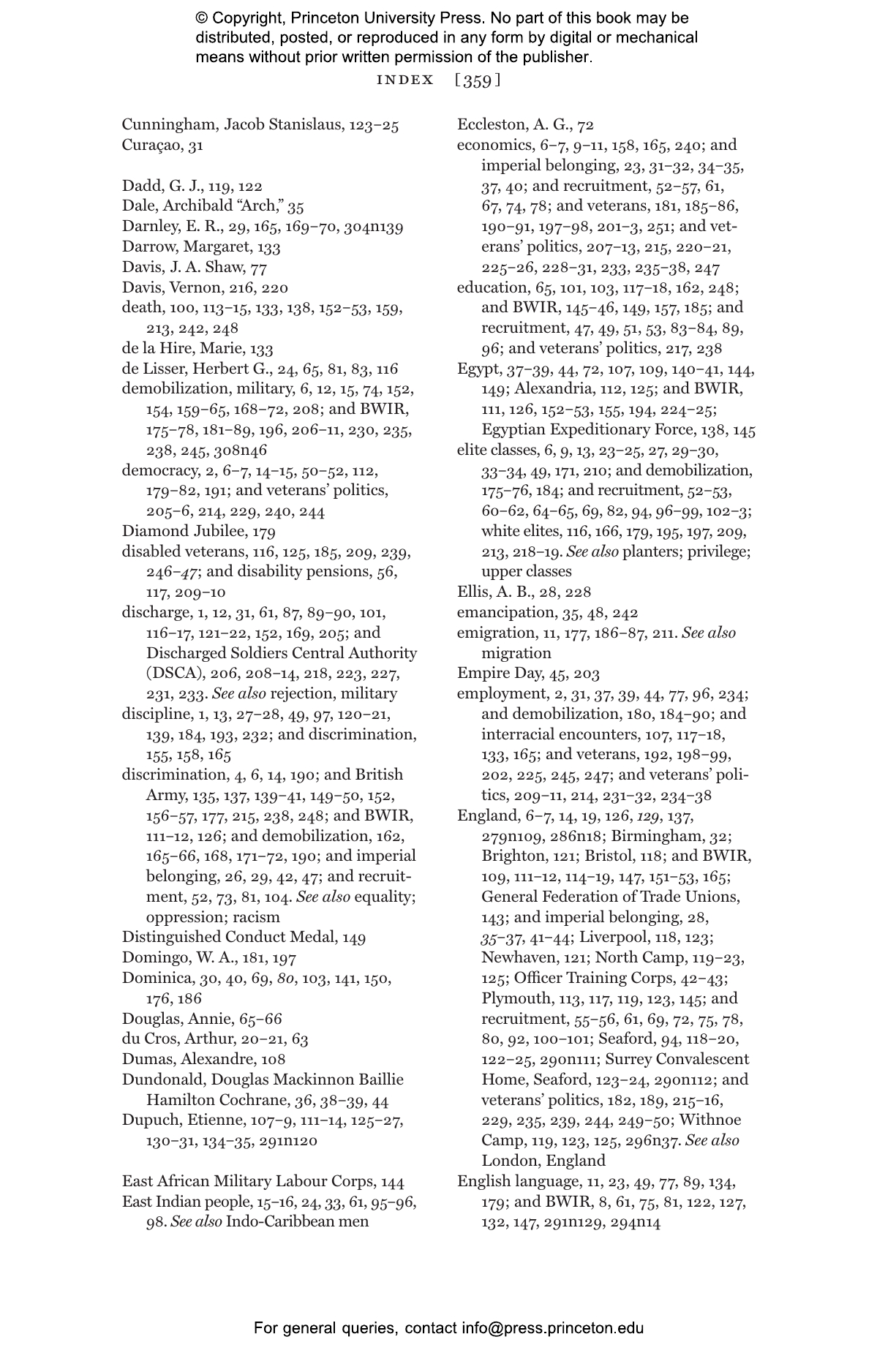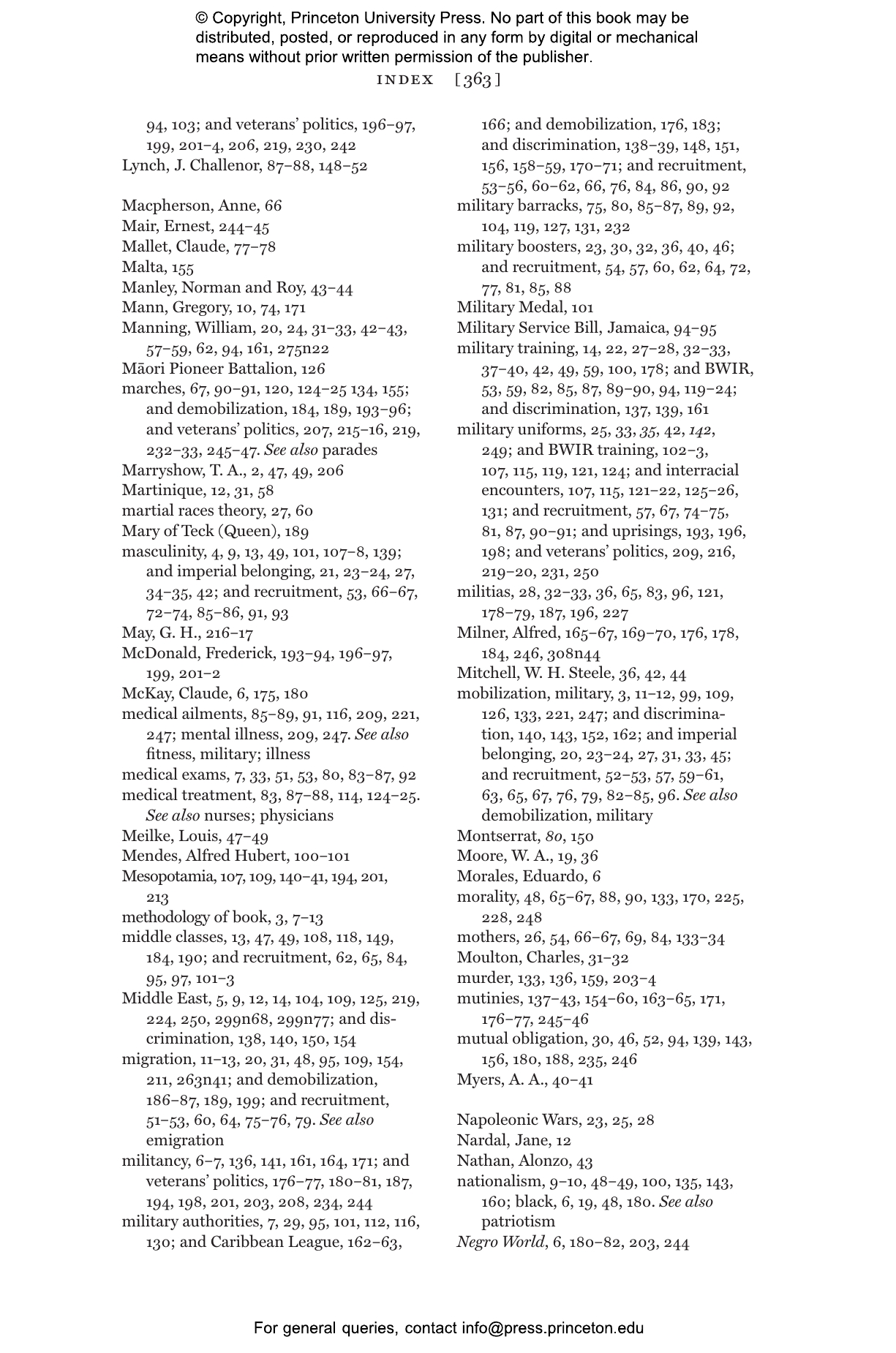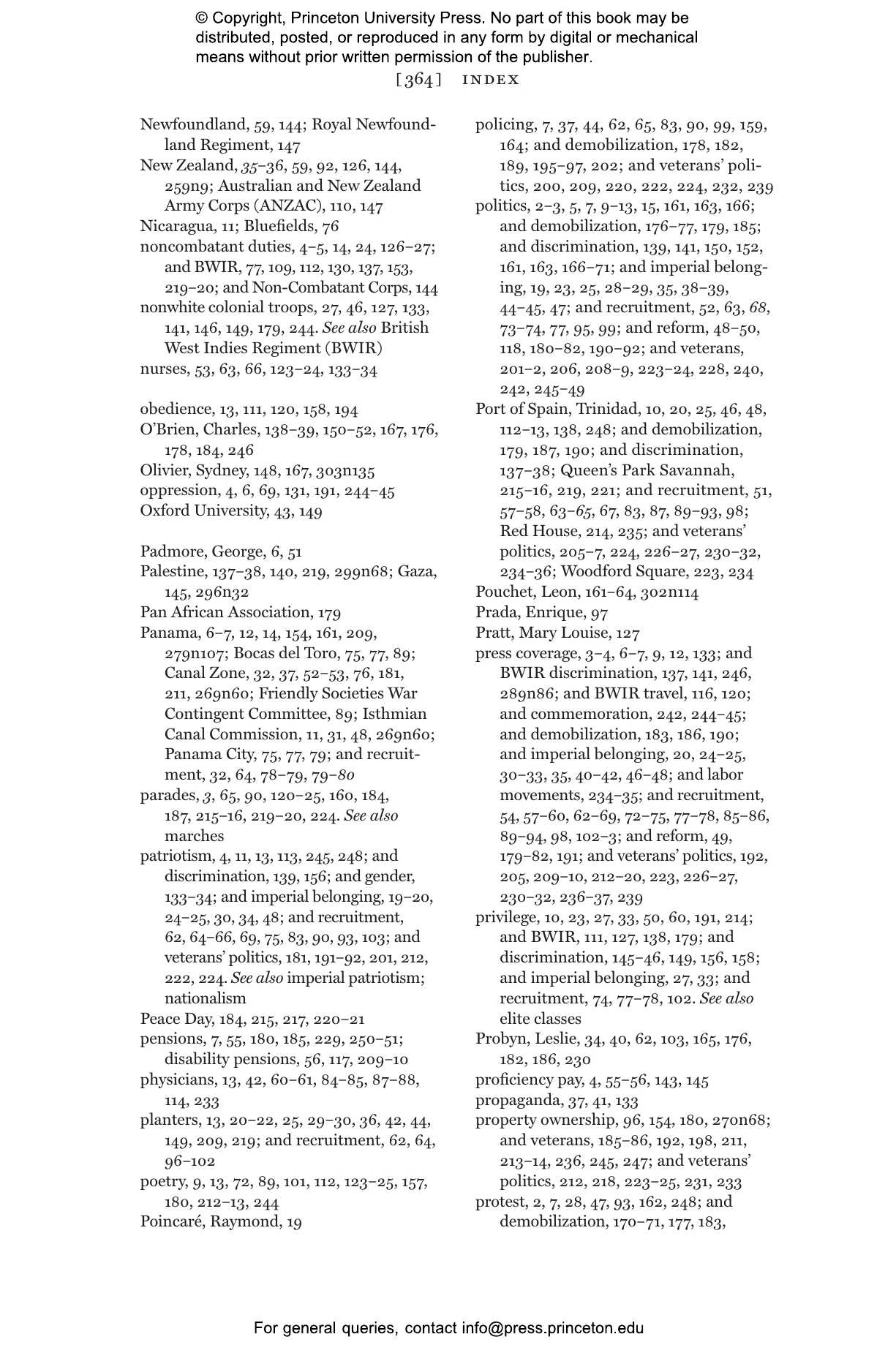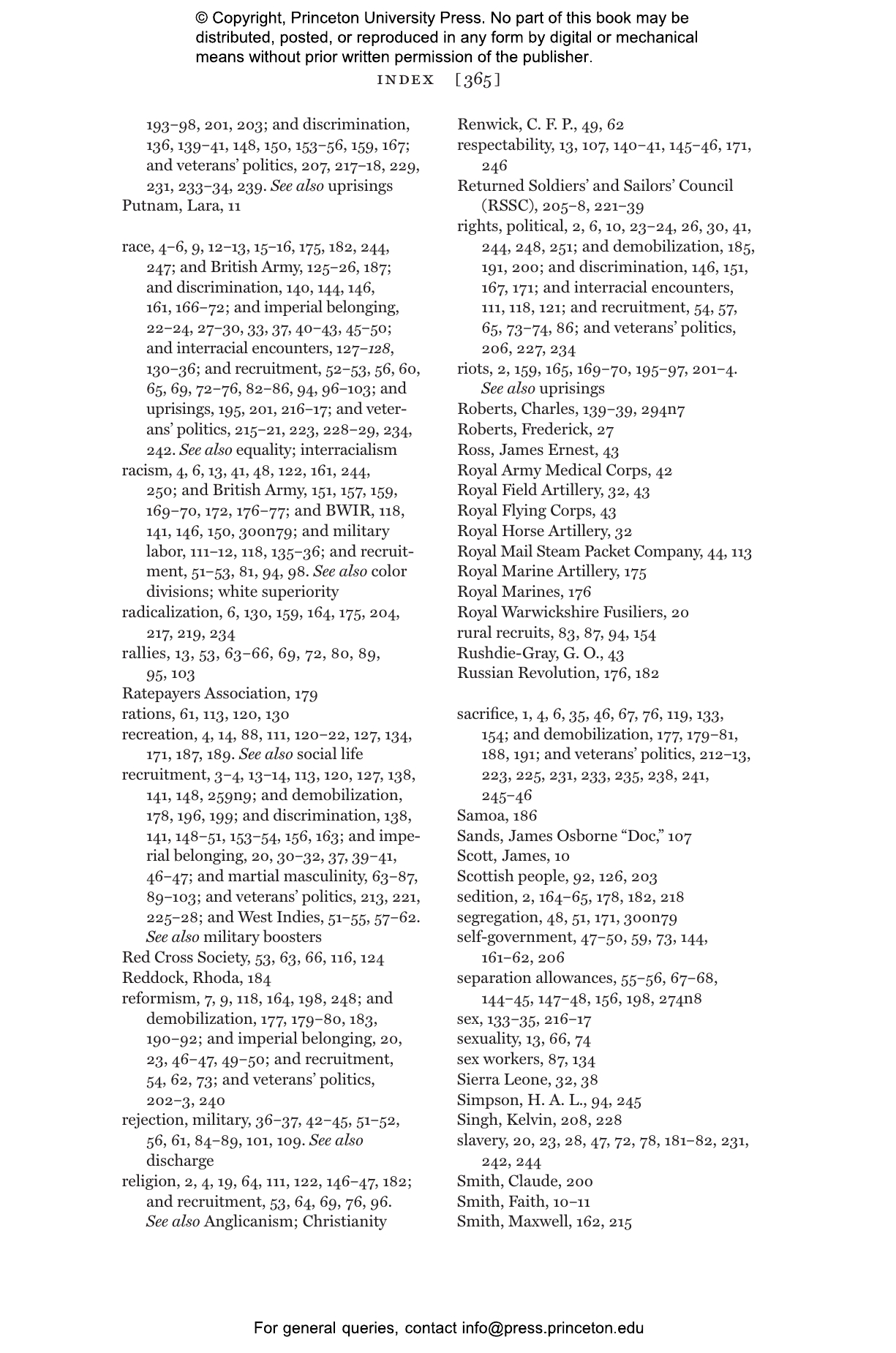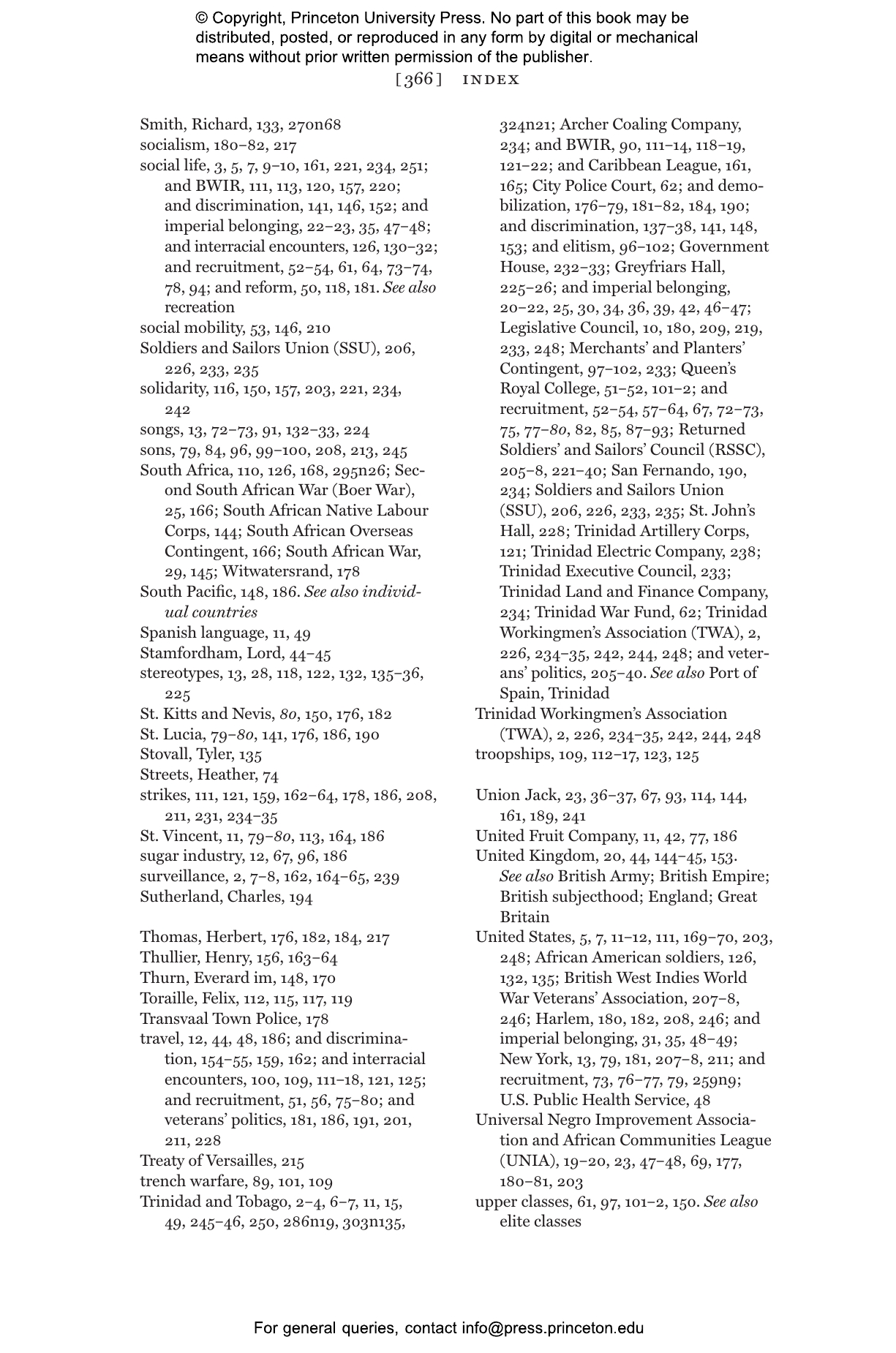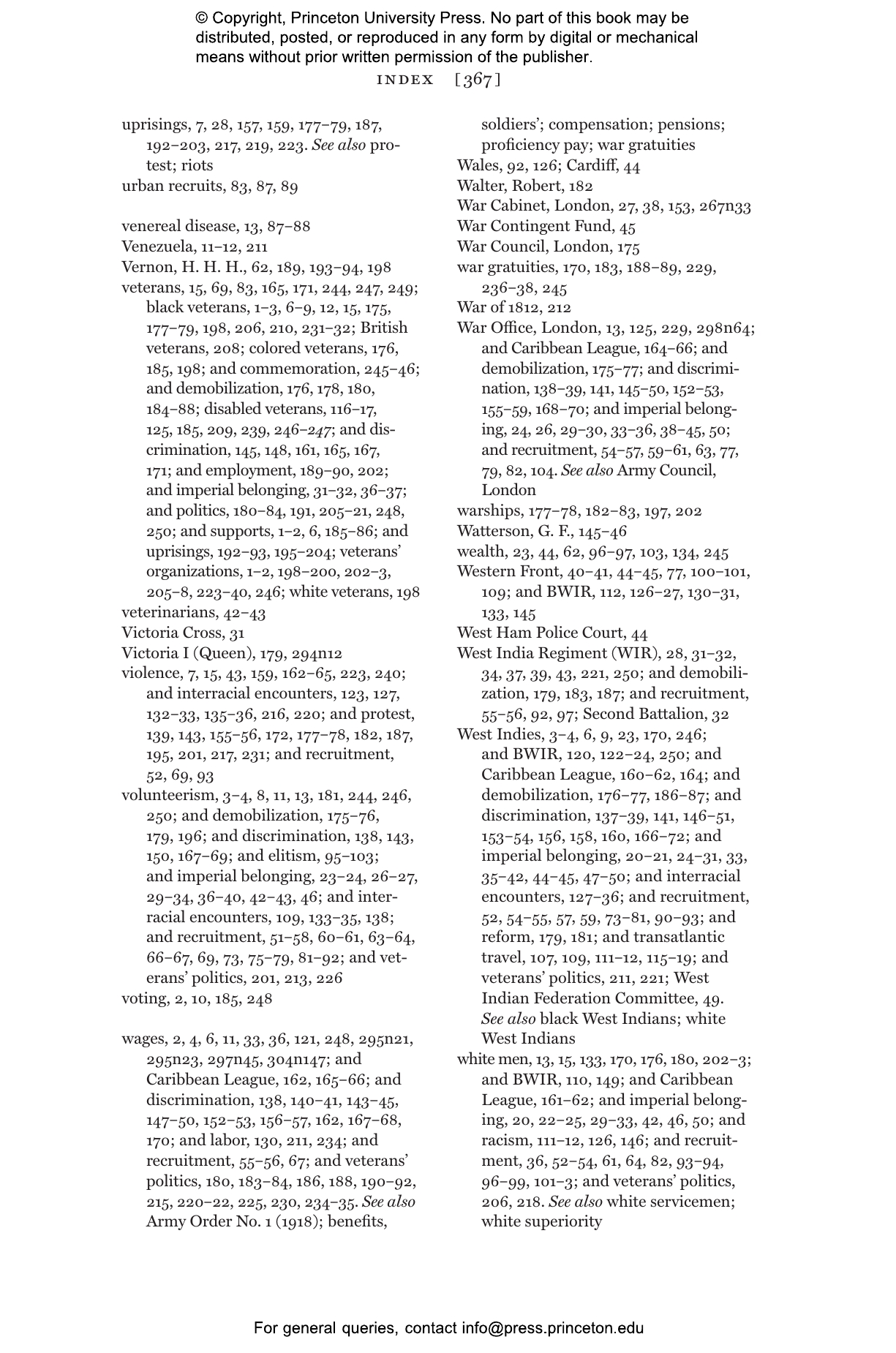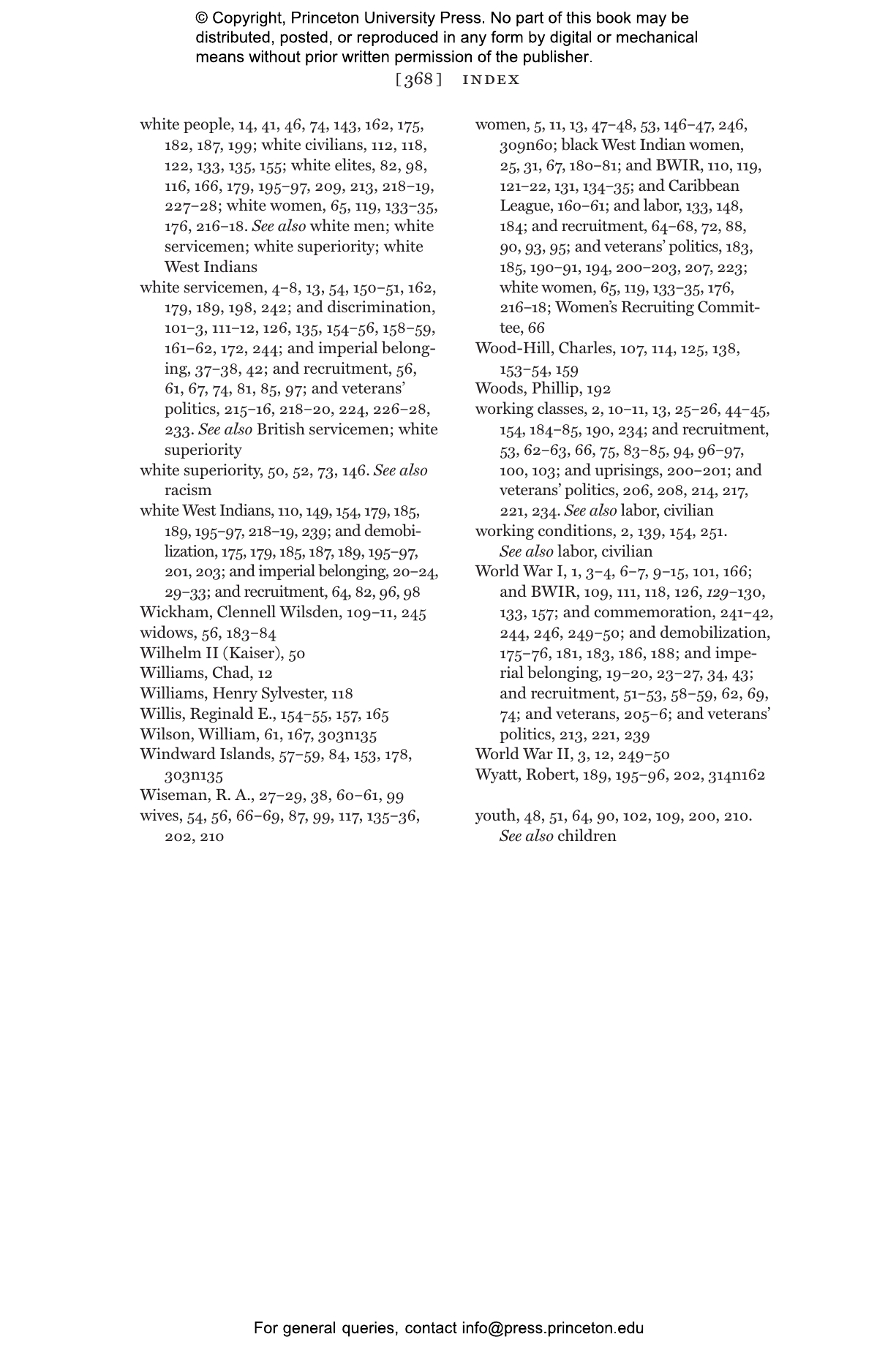Following the outbreak of World War I, tens of thousands of men from the British Caribbean volunteered as soldiers to fight on behalf of the British Empire. Despite living far from the bloody battlefields of Europe, these men enlisted for a variety of reasons—to affirm their masculine honor, pursue economic mobility, or enhance their standing as colonial subjects. Democracy’s Foot Soldiers offers a sweeping account of the British West Indies Regiment, the military unit established in 1915 for Caribbean volunteers, documenting their service during the war and their dramatic battles for racial equality and fair treatment in the armed forces and on the home front.
Drawing on previously overlooked archival sources in the Caribbean, England, and United States, Reena Goldthree demonstrates how wartime military mobilization spurred heightened demands for social, economic, and political reform in the colonial Caribbean. She recovers the forgotten contributions of Afro-Caribbean troops during the war, following their harrowing journeys to military camps in Europe, Africa, and the Middle East. Goldthree chronicles how, after the war, soldiers, their families, and their civilian allies launched their own “war for democracy,” strategically using the rhetoric of imperial patriotism—rather than the more militant language of anticolonial nationalism—to fight for respect and equality.
Democracy’s Foot Soldiers places these soldiers at the forefront of popular struggles over race, labor, and economic justice in the early twentieth-century Caribbean, showing that the war years were a crucial period of political ferment and mass mobilization in the region.
Reena N. Goldthree is associate professor of African American studies at 91��ɫ University.
34363
“Democracy’s Foot Soldiers is an absolute triumph that immediately becomes the definitive history of how World War I shaped the British Caribbean. The breadth of Goldthree’s research, the strength of her analysis, and the power of her storytelling radiates from every page. By deftly interrogating the complex interplay between war, military service, race, and empire in the experiences of British West Indian soldiers and veterans, Goldthree has produced a book of tremendous importance.”—Chad L. Williams, author of Torchbearers of Democracy: African American Soldiers in the World War I Era
“The World War I memorial for soldiers who fell in the Great War, located in Kingston, Jamaica, carries the inscription ‘Their name liveth for evermore.’ It is evident that Reena Goldthree has contributed a key cornerstone to this and numerous other monuments across the Caribbean region through her pathbreaking and riveting book, Democracy’s Foot Soldiers. The triumphant work is as interesting as it is informative. By mining the multiple and intersecting ways in which World War I shaped the Caribbean’s relationship with the British Empire through the bodies of soldiers, it exquisitely answers questions we did not even know to ask. Through extensive and thoughtful research, Goldthree revives the bones of Caribbean men’s wartime service in the British West Indies Regiment (BWIR), acting as a conduit for soldiers’ voices, experiences, claims making, demands for care, and fight for justice, all while vigilantly teasing out the ironies of colonial democracy. In so doing, Goldthree not only irradiates the history of BWIR soldiers’ role as transnational laborers but unpacks contemporary and unrelenting legacies of race and military labor in the Greater Caribbean and across the globe.”—Dalea Bean, author of Jamaican Women and the World Wars: On the Front Lines of Change
“Important and original. Goldthree weaves a surprising story of labor, patriotism, and transnational politics that allows readers to view World War I with fresh eyes. Deeply researched and skillfully written, Democracy’s Foot Soldiers illuminates the global scope of the war and how Afro-Caribbean soldiers fought to turn the British Empire to their advantage.”—Matthew F. Delmont, author of Half American: The Heroic Story of African Americans Fighting World War II at Home and Abroad
“Goldthree offers a beautifully written study of British West Indian soldiers’ experiences in World War I and its aftermath, always within the larger context of the aspirations of their home communities. It is tightly argued and memorable.”—Anne Eller, author of We Dream Together: Dominican Independence, Haiti, and the Fight for Caribbean Freedom
“Superb. Democracy’s Foot Soldiers is a powerfully delivered work of scholarship, written with authority, elegance, and accuracy. A joy to read.”—Ashley Jackson, author of Persian Gulf Command: A History of the Second World War in Iran and Iraq


